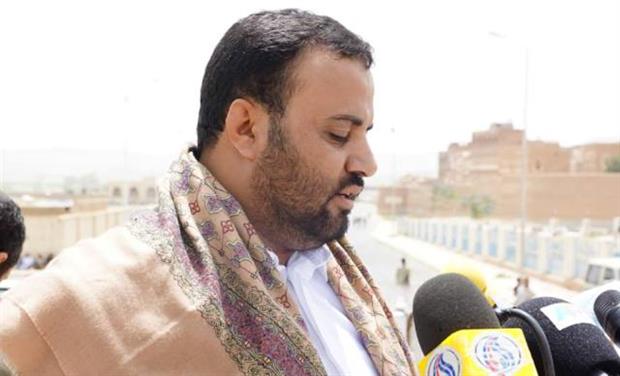
Ansarullah: Efforts to Find Political Solution for Yemen Failed
Local Editor
Yemen’s Houthi Ansarullah movement said that efforts to convene UN-backed peace talks to find a political solution to the ongoing crisis in the country have failed.
Houthi spokesman Saleh al-Samad said that, "All understandings for a political solution leading to the cessation of aggression have failed", as he wrote on his Facebook page on Friday.
Recently last week, United Nations [UN] Special Envoy for Yemen Ismail Ould Cheikh Ahmed said that he was hoping to begin separate preliminary talks with the Houthis and the government of fugitive Yemeni President Abd Rabbuh Mansur Hadi, expecting formal negotiations between the two sides "in the coming weeks".
Earlier this month [October], Houthi leaders announced that they would accept the UN-brokered peace plan, which requires adherence to Resolution 2216, if other parties to the conflict also commit to the initiative.
In his post, Samad also called on the Houthis to resist the Saudi aggression against their country.
"We should be patient and move with strength and courage in the face of aggression, to fortify our country against domination", he wrote, adding that, "We must redouble our efforts and exert ourselves to the utmost, ensuring the sacrifices made by our people over the past months do not go to waste".
A Saudi-led coalition backed by the United States has been carrying out a military aggression on Yemen by launching airstrikes against the country since March 26 in an attempt to restore power to Hadi, a close ally of Saudi Arabia.
The airstrikes have not been authorized by the UN.
Previous attempt to hold peace talks in Yemen failed in June as loyalists to Hadi backed away from the negotiations insisting that Ansarullah fighters and their army allies first withdraw.
The Ansarullah fighters took control of Yemen’s capital, Sana’a, in September 2014 and are presently in control of large parts of the country. The revolutionaries said that Hadi’s government was incapable of properly running the affairs of the country and containing the growing wave of corruption and terror.
Hadi, along with the cabinet of former Yemeni Prime Minister Khaled Bahah, stepped down in January.
On February 21, Hadi escaped house arrest in Sana’a and fled to his hometown Aden, where he withdrew his resignation and highlighted his intention to resume duties. He later fled the port city to Saudi Arabia.
